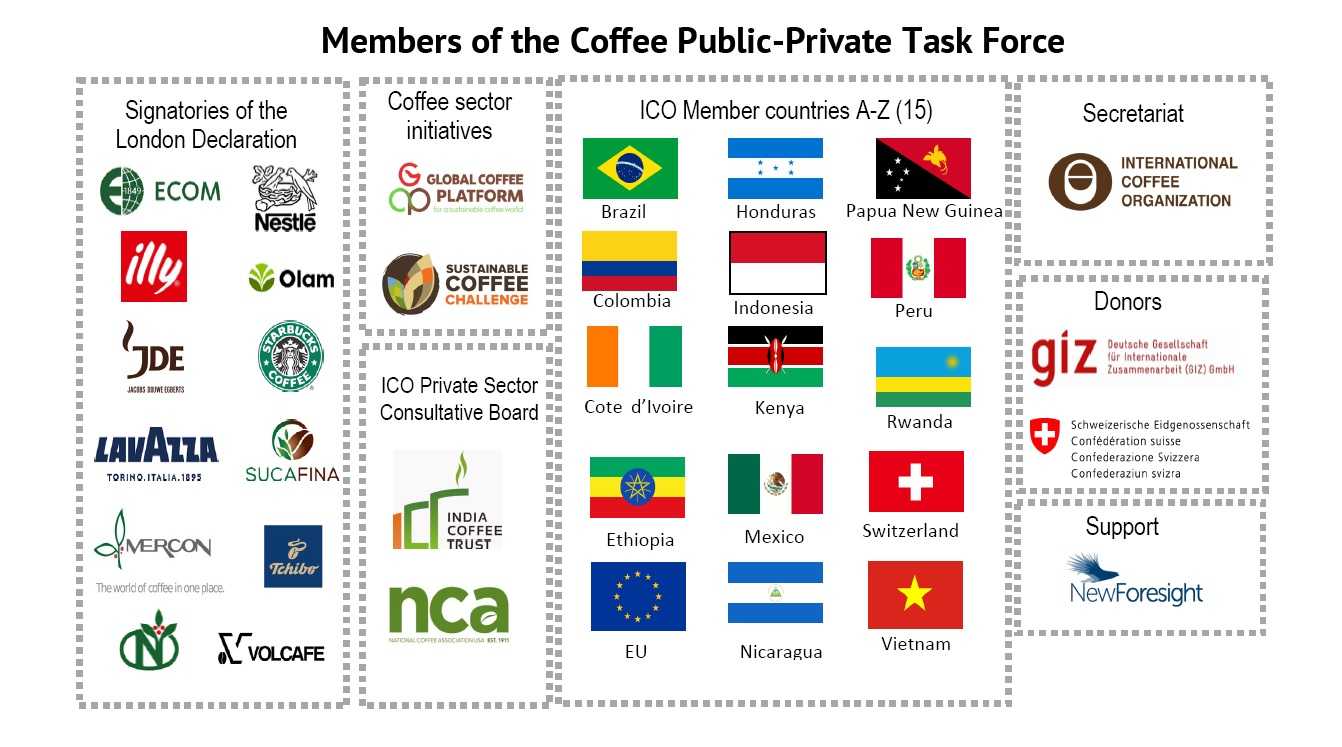LONDON, UK – This week the International Coffee Organization (ICO) convened the first-ever meeting of the Coffee Public-Private Task Force. High-level decision-makers from across the global coffee industry met virtually to discuss action-orientated ways of addressing key issues in the coffee sector such as persistently low coffee prices and the impact of covid-19.
“We are here today because we all believe that only by working together – coffee exporting and importing countries, public and private sector, civil society and knowledge-based organizations – can we make the coffee sector resilient, sustainable and prosperous for all. This is something no other commodity body has ever done: to start working together, public and private, on the same level of engagement and responsibility,” said José Sette, Executive Director of the ICO at the opening of the Task Force meeting on Tuesday, 30 June.
The economic sustainability of the coffee sector is an ongoing focus of debate among coffee stakeholders. Low coffee prices do not allow coffee growers in most producing countries to cover their production costs, let alone provide a decent livelihood to their families.
Furthermore, the added pressure of the covid-19 pandemic is dramatically affecting the weakest links of the coffee value chain and further bringing down coffee prices. In September 2018, the sustainability of the industry was widely called into question when international coffee prices fell to 30% below the average of the previous 10 years, since then prices have remained low. In response, the International Coffee Council adopted Resolution 465, instructing the ICO to engage and mobilize all coffee stakeholders to find joint solutions.
After a global consultation that involved over 100 top experts and engaging over 3,000 coffee stakeholders through the ICO-led Sector-Wide Structured dialogue, the ICO provided the space for coffee industry leaders and key supporting institutions to declare their commitment to address the root causes of the coffee price crisis and to enhance the long-term sustainability of the coffee sector.
Daniel Martz, Chief Corporate Affairs and Sustainability Officer at Jacobs Douwe Egberts (JDE) commended the ICO for persevering in facilitating collaboration between coffee stakeholders in the public and private sector.
“In the past six months, we’ve been able to continue our efforts under common grounds, partnering and securing agreement with the US, doing work with the government in Brazil, Honduras, Peru and Vietnam, in support of smallholder coffee farmers. We’ve also linked up partnerships with the government in Netherlands, Uganda and Peru.
We’re also proud of a recent agreement with the EU to do some work in Rwanda. And we’ve added the Australian government for work in Vietnam. That work is partly inspired by the workshops, the convening of government, NGOs, and the private sector, led by this ICO effort,” said Mr Martz.
The Coffee Public-Private Task Force will help members jointly improve the sustainability of the coffee industry, to find consensus, to understand differences and to find common ground. The ICO will continue to support the global coffee sector so that all coffee stakeholders can live well and earn a decent living while contributing to a sustainable and fair industry.
















